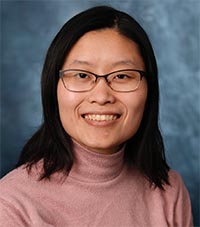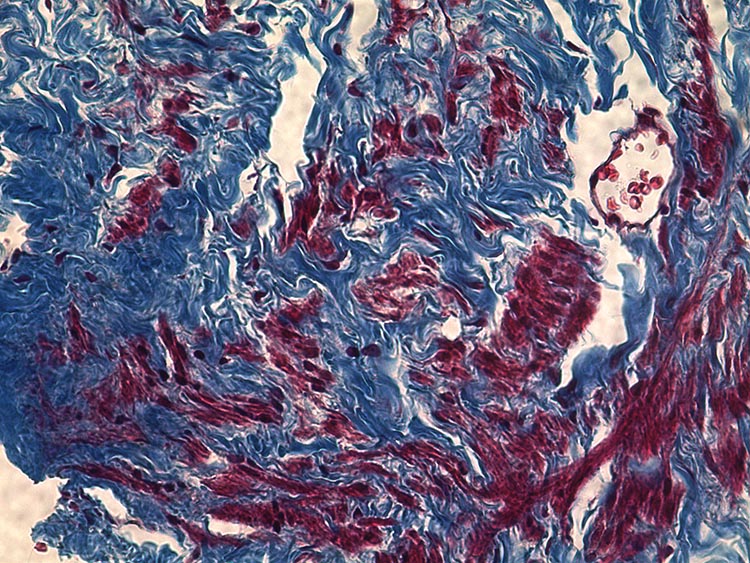Meet the Researchers: Yvonne Chan, MD
Yvonne Chan, MD, recently completed her pediatric urology fellowship training at Northwestern University, including a year devoted to research in the laboratory of SQI faculty member Arun Sharma. Prior to coming to Northwestern, Chan graduated from medical school at the University of California, Los Angeles and completed residency training in urologic surgery at the University of California, Davis.
In this interview, Chan describes what led her down her current career path and her primary research project in the Sharma Lab.

What attracted you to the Sharma Lab and Northwestern for your fellowship training?
In the process of fellowship interviewing, I met Dr. Sharma and we discussed the research that he had done and is currently pursuing on tissue engineering and regeneration in multiple organ systems. He was a really great mentor and was invested in teaching and allowing me to explore my interests.
How would you describe your research interests and projects in the Sharma Lab to a non-scientist?
In pediatric urology, we take care of children who are born with neurogenic bladders, meaning that they have conditions in their nervous systems that prevent their bladder from functioning normally. In a subset of these kids, we need to make their bladders bigger because elevated bladder pressures can cause damage to their kidneys.
Currently, we use segments of small bowel to, in part, reconstruct the bladder, but that comes with its own risks and long-term complications. So, Dr. Sharma’s lab is using different scaffolds, stem cells and nanomaterials to see if we can create an off-the-shelf material to augment these bladders and result in better outcomes. That was really interesting to me, and what I’ve worked on in his lab is testing out this material in animal models. (Regenerating bladder muscle from a Sharma Lab study is pictured below, right).
Dr. Earl Cheng is an SQI faculty member who collaborates closely with Dr. Sharma. Can you describe his role in the lab, and what your relationship has been like with him?
He’s actually my division chair. During my research year I worked closely with him on the bladder augmentation project and we did a lot of surgeries implanting the material in animal models. Then I followed up with urodynamic and ultrasound testing.
I think they have an excellent collaboration. Dr. Sharma brings the science and benchside knowledge and then Dr. Cheng brings in the clinical applications and clinical perspective regarding bladder regeneration-based projects. Dr. Sharma also has a focus on inflammation and how it pertains to regeneration/wound healing in intestinal and vascular organ systems, and this research has also shown promise thus far.
What motivated you to pursue a career in medicine in the first place, and how did you become interested in pediatric urology as a specialty?
I’ve always wanted to be a physician since I was a kid, mainly because the physicians I came across were always very altruistic and committed to helping people be at their best. Sickness takes away from people’s abilities to be the best that they can be, and being a physician helps them recover and allows them to reach their maximum potential in life, so that’s what drew me to medicine.
Surprisingly, I never thought I would go into pediatrics, but when I was rotating through my pediatric urology rotation in residency, I found really great mentors who invested in my surgical training and took really great care of patients. It was their dedication, attention to detail, and the relationships that they formed with their patients that really drew me into the field and all of that has been strongly reinforced with my experiences at Lurie Children’s Hospital. It’s just a great group of faculty who take fantastic care of their patients and form lasting bonds with them.
Now that you’ve had both the research and clinical training, what mix of those two aspects do you see yourself pursuing going forward?
I’m still figuring that out. I do see myself as a physician-scientist but more so in the clinical setting, so I hope to continue working with the neurogenic bladder population and helping to improve their care from a clinical perspective.
I think that my knowledge from the lab will be very helpful in caring for these kids if we are able to develop a material for augmentation that does not require use of bowel. I think that the knowledge I’ve gained opens my eyes to how we can care for these children in the future.
One thing I learned during my research year is the cutting edge of tissue engineering research takes relentless passion and drive. You have to be very patient and keep pushing forward even when things have not turned out as you expected in the short term. But in the long term, the results are pretty promising.
